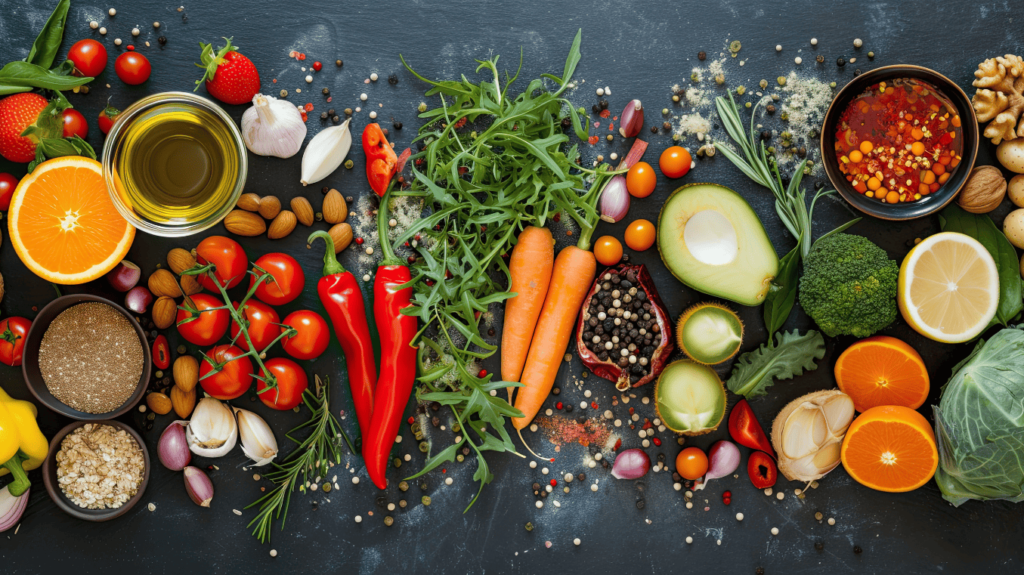Parents often wonder what they can do to keep their children healthy and if there are ways to boost their immune system and ward off illnesses.
A healthy balanced nutrient-dense diet is the best defence and provides the required nutrients needed for growth and development. In addition, there are many different immune-boosting vitamins, minerals and herbal remedies with zinc, vitamin C, vitamin D and probiotics which can play a key role in preventing children getting sick and assisting them to recover from infection and illness.
Essential Nutrients for Immunity
Zinc. Children need zinc to grow and develop and is a mineral that is important for immune function, wound healing and the senses of smell and taste. If there is a zinc deficiency the immune system cannot work at its best, making it difficult to fight off common bacterial and viral infections. Zinc must be consumed through the diet and supplements as the body doesn’t produce its own. The highest food sources of zinc include red meat, poultry & fish, nuts (almonds & walnuts), legumes, oysters, and sardines. Offer almonds as a snack including adding them into a trail mix or crushing and adding to yoghurt and cereal.
Vitamin C is well known for its immune boosting qualities by helping to increase the production of white blood cells to help protect against and fight off infections. Foods traditionally high in vitamin C include kiwifruit, berries, citrus fruit, tomatoes, broccoli, and capsicum. Try slices of fruit such as oranges, fruit salad or “picky plates” with fruit, nuts, crackers, cheese etc and raw vegetable sticks with dips such as hummus or tzatziki.
Vitamin D plays a significant role in modulating the health of the immune system to protect against illness and disease. As sunshine is needed on the skin to produce vitamin D, it is often low in kids who spend a lot of time indoors especially in winter. Food sources of vitamin D include eggs, mushrooms, fish, and cod liver oil.
Probiotics offer many health benefits, including preventing upper respiratory (airway) infections, improving digestion, and boosting immunity. Probiotics are found naturally in fermented foods such as yoghurt, kefir, apple cider vinegar, fermented vegetables, miso and kombucha.
Recipe Inspiration
Nourishing smoothies are a good way to increase the energy and nutrient content of the diet. A full fat dairy or dairy free (plant-based milks or coconut water) base fluid with added fresh or frozen fruit, yoghurt, nut pastes, avocado, MCT oil, maple syrup or honey and other powdered or liquid supplements is a great nutrient dense, easy to consume snack for kids. Pre & Probiotic supplements are also beneficial.
Overnight oats / Bircher style muesli. Great as a snack, supper, or breakfast.
Recipe: Add 1-2 cups of oats (not quick oats), milk to cover, stir in 1 small grated apple, add ½ tbsp chia seeds, 1 tbsp ground nuts and seeds (almonds or LSA) , and 1-2 tablespoons of honey or less of maple syrup. Cover and soak for a few hours or overnight. If the oats are too thick, add some more milk to loosen them. Serve layered with berries (& other fruits if preferred, yoghurt and chocolate granola).
Additional Superfoods
Dark leafy green vegetables such as spinach & Kale are a good source of immune boosting vitamin A and iron as is broccoli. Include both fresh and cooked green vegetables into family meals such as pasta dishes and casseroles or present them steamed. Orange vegetables such as carrots, sweet potato and pumpkin are also very beneficial.
Garlic is very beneficial for the immune system with many studies showing the consumption of garlic helps to enhance immune cell function and help to reduce cold and flu symptoms.
Lifestyle Changes
Adequate sleep, hydration and nutrients will ensure that illness is minimised or avoided, and growth and development continue strongly in our precious infants, children, and adolescents. When children have a bigg er role in choosing and making dinner, they often end up having fun, liking the end results and eating a lot more.
By Jo Campbell





